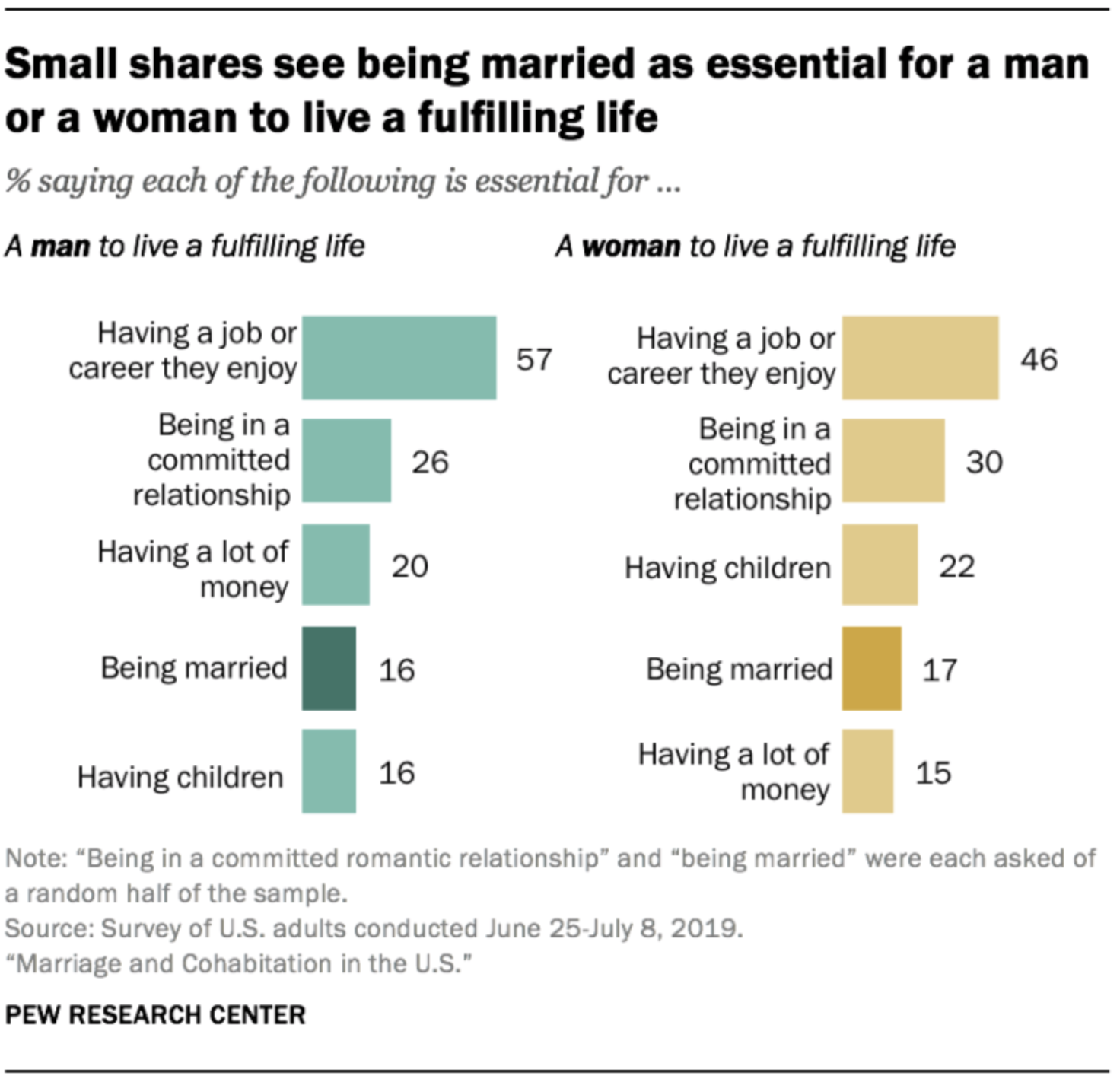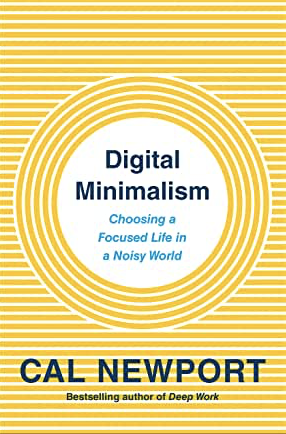The Viewpoint
- Life Fulfillment
Research from the “Pew Research Center” is almost always engaging, but the most recent study is really fascinating. Take a look at the below graph:
Work is the #1 means to a fulfilling life for both men and women. I’m not surprised that men and women flip flop priorities on money and kids, but I am surprised that both sexes share the same goal with a career. This graph might shed some light as to why it’s not uncommon for a career to get 50-60+ hours a week of attention for men and women.
The number one reason why I think work is center focused for so many men and women: Worth. We all have a desire to be worthy, to prove ourselves, and work checks all the boxes for making us to feel that way. Money for our work (money is a vote of value), encouragement for a job well done, recognition for success, and “close but not too close” relationships with coworkers. When home is stressful, work is a great escape. - Multiple Sexual Partners and a Higher Rate of Infidelity
Those who have had multiple sexual parters are more likely to participate in an affair. From this article, “For people who reported four or fewer lifetime sexual partners, the rate of infidelity in the current marriage dropped to 11%, while for those who had five or more sexual partners the number was nearly double (21%).”
This data makes sense at so many levels. Culturally we have bought into the “try before you buy” mindset of marriage. This is actually a really good principle for dating and engagement, but not in regards to sexual compatibility. There’s an old quip that illustrates this pretty well: Getting married because of great sex is great, at best, for about 15 minutes a day … what are you going to do together for the other 945 waking minutes of your time together? Sexual compatibility is created over time, together.
What we practice in private, we will live out in public. Sex and marriage requires living with clear boundaries. Practicing these boundaries in our single (private) life will set us up to live this in our married (public) life. - Secrets and Sickness
In his book, Telling Secrets, Fredrich Beauchner wrote this: “We are only as sick as our secrets.” Evil feasts on deception, little white lies, and truth twisters. People don’t give themselves to evil overnight, they do so in small doses over time.
Some troubling and sobering news out this week on a very public Christian figure, John Crist. The popular comedian has cancelled his tour after reports of sexual harassment and manipulation of multiple women.
I hesitated to mention this story today because I don’t know John. I’ve watched his funny videos on Christian culture, but I can’t speak about his character or what happened in these troubling stories. What I do know is that John is not all that different from you or I. We all have a capacity to do exactly what he has done, and worse. This story is a mirror for us to consider what is happening in our own lives.
We all play hide and seek. We all need to be found out. We all need grace. And we all need to be confronted with the hurt and harm our secrets have had on God, others, and ourselves. Only then can the work of recovery happen. - A Prayer
My Lord God,
I have no idea where I am going, I do not see the road ahead of me.
I cannot know for certain where it will end.
Nor do I really know myself,
So the fact that I think I am following your will does not mean that I am actually doing so.
But I believe that the desire to please you does in fact please you.
And I hope I have that desire in all that I am doing.
I hope that I will never do anything apart from that desire.
And I know that if I do this, you will lead me by the right road.
Therefore I will trust you always though I may seem to be lost and in the shadow of death.
I will not fear, for you are ever with me,
And you will never leave me to face my perils alone.
~ Thomas Merton, Thoughts in Solitude
The Viewpoint is a semi-weekly roundup of content I have come across throughout the week that is worth reposting. This content will often be an article or a book I’ve recently read, or something else that is of cultural significance. One of my good friends talks about the word “viewpoint” as nothing more than a view from a point. When we change our point of view (or sometimes the point of our view — which is a different issue altogether), we can see differently. Relationships grow when we are open to changing our view.


